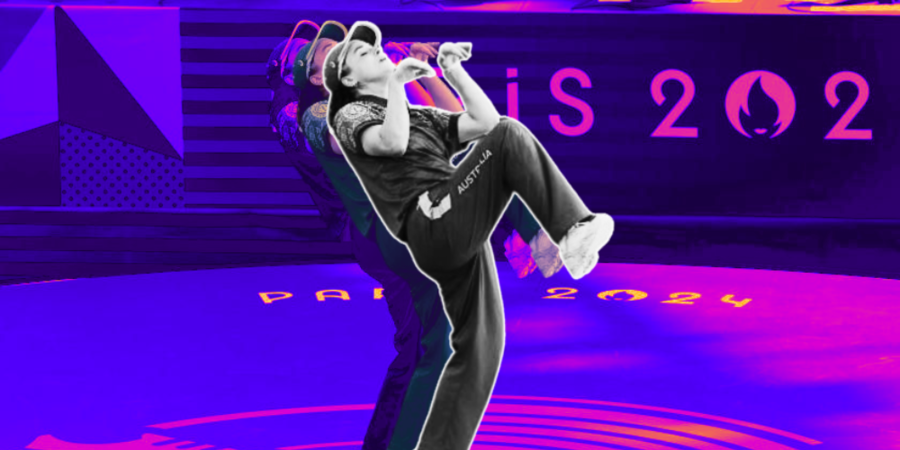
AUSTIN PETERSEN: Aussie Rachel ‘Raygun’ Gunn’s ‘rigging’ accusation is an object lesson in merit trumping victimhood
Aussie Olympic break-dancer Rachel Gunn, a female leftist white professor (this is important), received zero points for her terrible breakdancing in the 2024 Paris Games. Her goofy kangaroo hops and lackluster spins have already spawned a million memes and laughter across the globe.
You might be tempted to just laugh at her antics too, and give her credit, as Australian Prime Minister Anthony Albanese did, since she at least “had a crack,” and “good on her.” But frankly, I’m more inclined to side with Dr. Dre’s take when he said, “It was funny, I got some laughs out of it, but what the f**k? […] There are incredible breakdancers out right now; I don’t know how that happened.”
How indeed, Dr. Dre?
The first thing you need to know is that “breakdancer” Rachel Gunn, AKA Raygunn, wrote her doctoral thesis on the subject, “Deterritorializing gender in Sydney’s breakdancing scene: a B-girl’s experience of B-boying.”
Because of course. It couldn’t be that she was just a normal person who enjoyed dancing and somehow ended up way out of her league on the world stage. Her push to get a spot in the Olympics was all about DEI, ie demanding a place as a woman in a “male dominated” sport.
What could be more woke? And what could be a better example of affluent white female liberal (AWFL) behavior than the fact that she is engaging in cultural appropriation (something I thought was a big woke no-no) of a sport that’s traditionally dominated by minorities? Leftists like Gunn will gladly insert themselves where they don’t belong to advance her feminist victimhood agenda. So why no mention of breaking down the color barriers in the “sport,” Rachel?
To their credit, many in the black community are agreeing with Dr. Dre, such as Human Events columnist Adam Coleman who wrote on X that Gunn can’t “PhD her way into being extremely athletic.”
One X user put it well when he said, “real ivory tower academic move to misapply an intersectional justice lens onto a Black cultural thing and think that it becomes a system that marginalizes you because you’re a white lady that didn’t grow up in the culture.”
As it turns out, Dr. Dre was right, there are better breakdancers out there. But Rachel Gunn is accused of managing the qualification process so that she would be guaranteed a spot, despite the fact she couldn’t qualify for a barn dance. A Change.org petition titled “Someone who hates corruption” is calling for action and accountability in the selection process for the Olympics, focusing on chef de mission Anna Meares and breakdancer Rachel Gunn.
The petition, addressed to Prime Minister Anthony Albanese, accuses Gunn of manipulating the selection process to her advantage, claiming more talented breakdancers were unfairly overlooked. It demands public apologies from Gunn and Meares, an investigation into the selection process, and scrutiny of Gunn’s business dealings. The petition has garnered over 23,000 signatures in just two days. To her credit, the Sydney Morning Herald is claiming the gaming of the selection process is not true.
From 2021 to 2023, she competed in various international events, typically placing low on the leaderboard, with rankings ranging between 40th and 70th, as reported by the Olympics website. Despite her struggles, she hadn’t qualified for the Paris Games until the Oceania Championships in Sydney, Australia. However, something changed at that event. Gunn unexpectedly outperformed all her competitors, securing a first-place finish and finally qualifying for the Olympic Games somehow. She’s accused of preventing other actual talented breakdancers from appearing to compete against her.
Anna Meares, a former professional cyclist/Australia’s chef de mission, advanced Gunn’s feminist victimhood narrative, saying, “If you don’t know Rachael’s story, in 2008, she was locked in a room crying being involved in a male-dominated sport as the only woman, and it took great courage for her to continue on and fight for her opportunity to participate in a sport that she loved.”
So, she locked herself in a room crying because she was in a male dominated sport? And for that she deserves sympathy? A spot in the Olympics? Maybe if she had locked herself in a room practicing instead of crying she might have actually improved to have been good enough to represent her nation honorably.
Meares then went on to describe Gunn as the best female breakdancer in the country, which would be even funnier than Gunn’s dancing if it weren’t an obvious lie.
Gunn turned what used to be a celebration of black culture and the freewheeling 1980’s into a crude parody. Her antics are a prime example of how the left seeks privilege through race and gender, only to completely ignore their own rules when a white woman wants to use her gender to exploit black culture.
Leftists who seek to be victims for the reason that it grants them special privileges are often said to be competing in the “Victim Olympics,” and the saddest commentary of all is that apparently playing the victim can take you to the real Olympics as well. But there is one upside to this: in the actual Olympics they aren’t handing out any gold-plated participation trophies. In the actual Olympics, if you don’t have merit, you get memed to death. In the actual Olympics, being a victim still matters less than being excellent. And if you ask me, there’s a lesson there for society at large.
This Story originally came from humanevents.com
Stay Updated with news.freeptomaineradio.com’s Daily Newsletter
Stay informed! Subscribe to our daily newsletter to receive updates on our latest blog posts directly in your inbox. Don’t let important information get buried by big tech.
Current subscribers:








